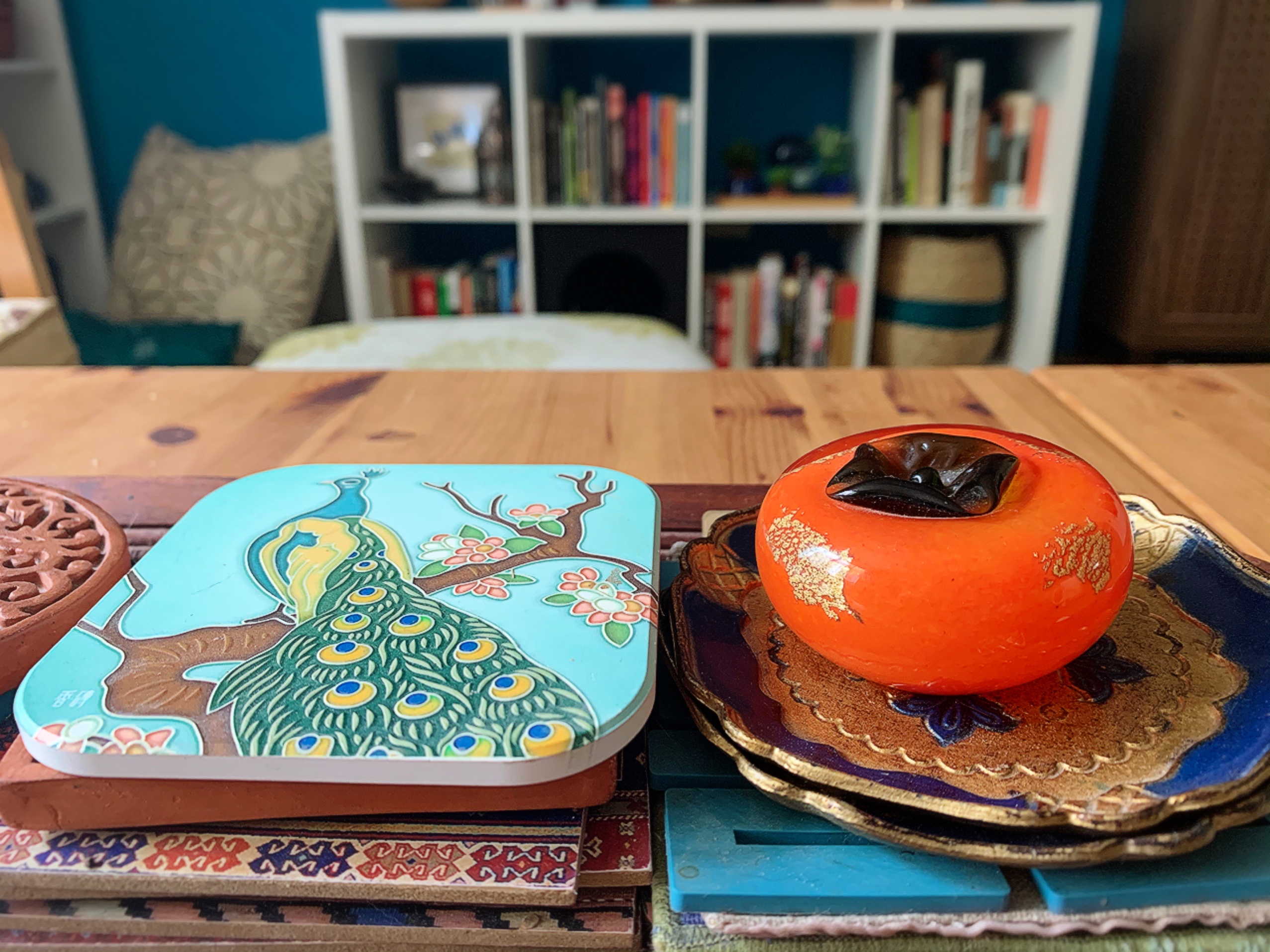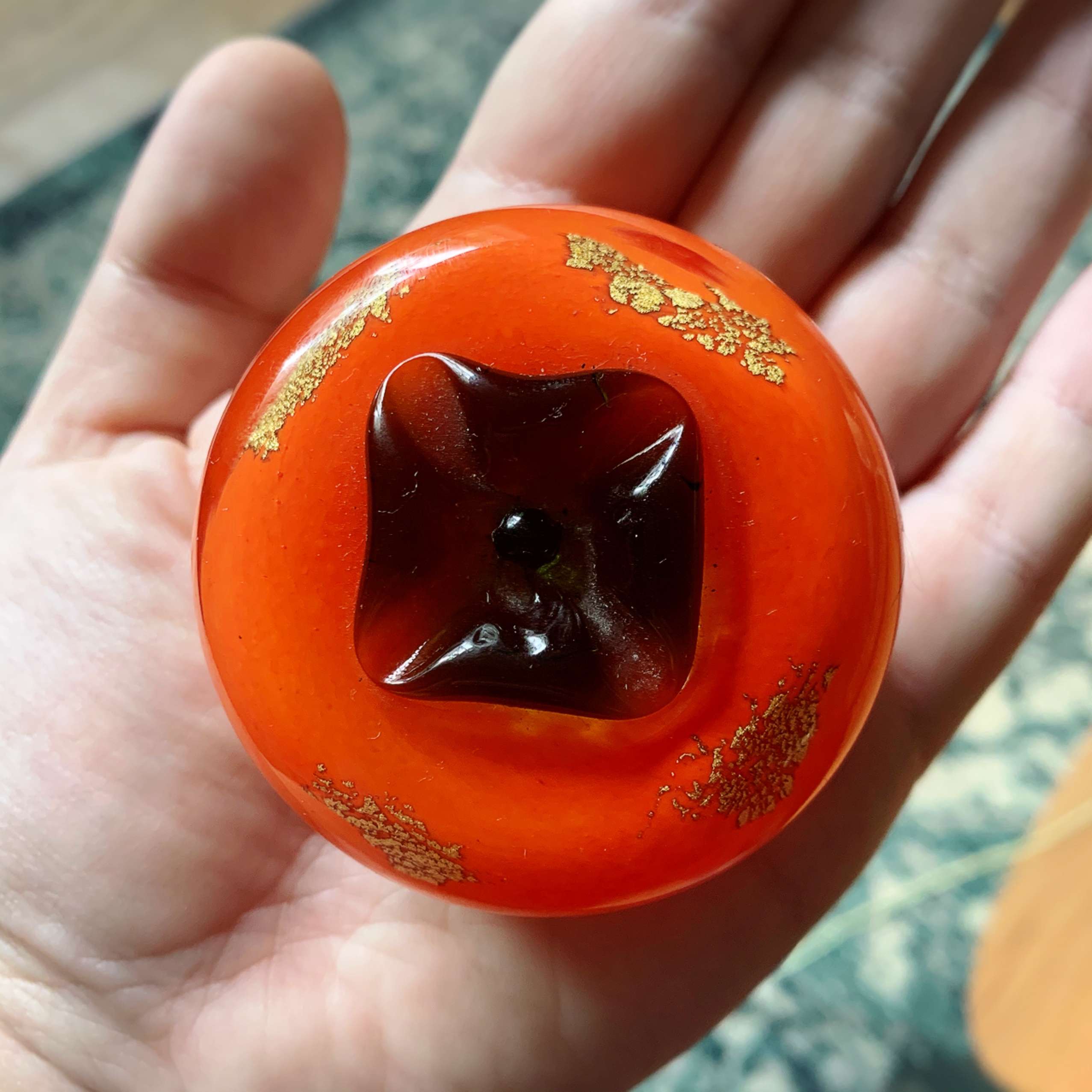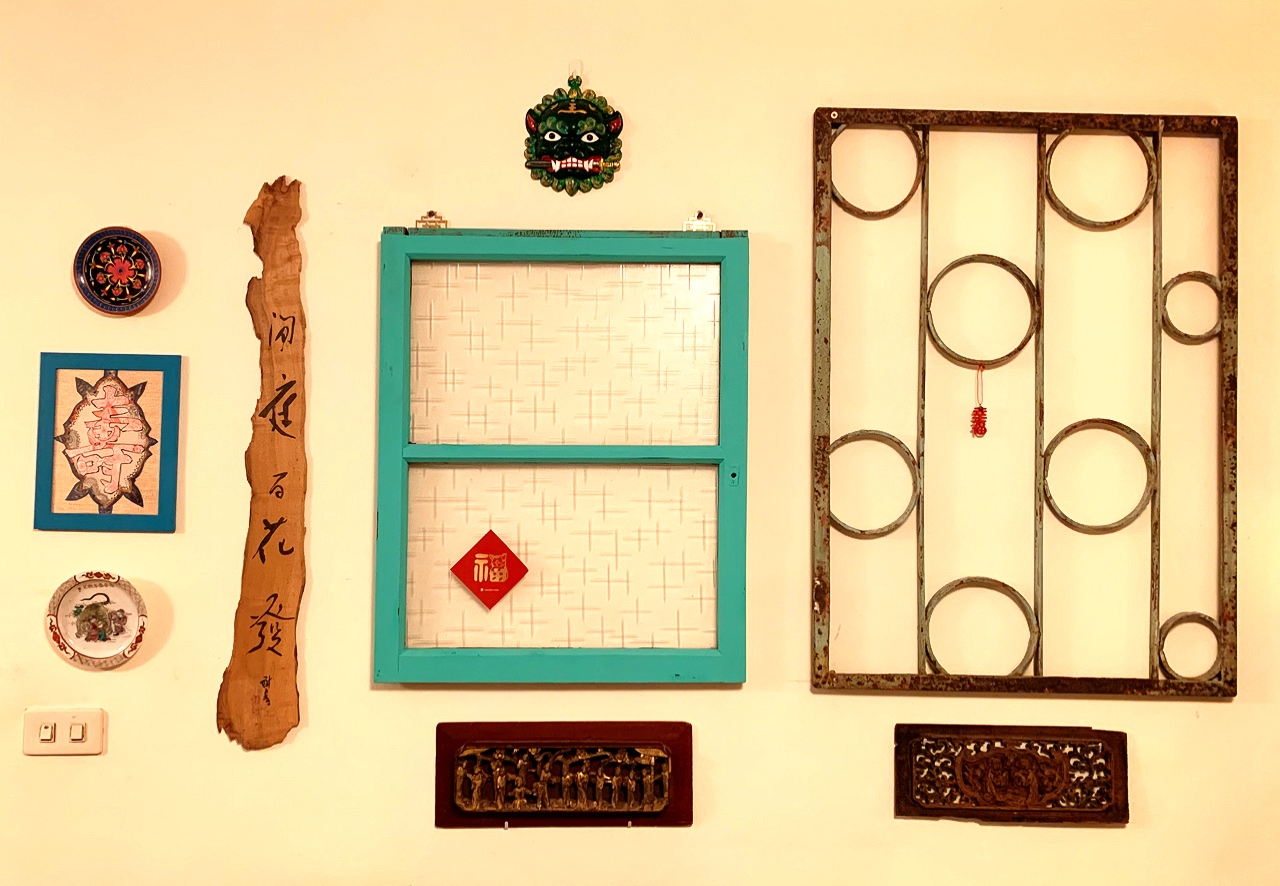 |
| The graphic that appeared by the names of some Taiwan Statebuilding Party candidates in the 2020 election on official ballots |
First, an announcement: you’ll be seeing fewer (and shorter) posts from me between now and June. I am now officially shoulder-deep in dissertation writing and really must concentrate on that. I’ll update occasionally, but in the meantime I’ll be posting relevant content by others on the Lao Ren Cha Facebook page (yes, that is a thing which I never formally announced).
Anyway, let me tell you a story.
When I was in junior high, I was the target of a not-very-successful bully (everyone else hated him too; his bullying did not win him any popularity). He’d randomly trip me in the hall, push or whack me for no reason. Once, he ran into a classroom I was in, put some tape he’d pulled from a cassette around my neck and ran out holding both ends. One day, he made a paper ninja star and flung it at me just as a class we had together was about to start. It nearly hit me in the eye.
I lost it. I got up, slapped him hard across the face, picked him up by the neck - lots of adrenaline going - threw him into a row of desks, and then kicked him so he slammed further into those desks. I may have done more; I was a whirling dervish of rage and I truly don’t remember.
My response was way out of proportion to his throwing a paper star at me. But honestly, considering everything else he’d done over the past two years, it had been a long time coming. I don’t condone violence and would not do this as an adult, but I’m also not sorry for beating the crap out of him as a teenager.
So what?
I’m not talking about those who pointed out the logistical issues or the question of priority. Those opinions are reasonable. I’m talking about those who expressed that the lives of those people were not Taiwan’s concern - despite their being family members of Taiwanese nationals.
I had been trying to start from kindness - that is, recognize that it’s important to treat even people you don’t like as human beings whose lives matter. I’ll be the first to admit I don’t care for the attitudes of Taishang generally. And, just as importantly, that it’s not right to dismiss children as ‘not our concern’ because you don’t like the decisions of their parents - decisions the children had no say in.
After acknowledging that, talk of logistics becomes possible, and the same decision may have been made in the end because China has left Taiwan with so few options - but the process of the discourse matters.
I stand by that view, but here’s what’s changed: I should have also started from kindness when considering Taiwanese public opinion.
With a few exceptions of some extreme comments online that do not represent the norm, I highly doubt most people actually want to punish those children by refusing them evacuation because they dislike their parents. Most people are quite capable of realizing that those children did not choose to be Chinese nationals.
Rather, it was a howl of rage from Taiwanese who’ve chosen to stay and engage with their country, who are sick and tired of both China’s bullshit and Taishang opportunism and sellout behavior that actively harms Taiwan. Howls of rage are not always politically correct, but that does not render them unjustified. This one was a long time in coming, and I should have seen that immediately.
In other ways, I’ve tried to be empathetic to these expressions of anger. While I appreciate the discussion of Sinophobia in Taiwanese discourse, generally I feel we should always - always - view statements that may seem aggressively nationalist or anti-China on their face in the context in which they are made.
Taiwan has been treated like garbage by the Chinese government for so long - and individual Taiwanese have been insulted by a large number of Chinese citizens so regularly - that honestly, can you blame them for lashing out? Maybe give the victims in this game a break instead of (yet again) putting the burden of assuming a conciliatory tone on them.
Especially when they already know that it’s logistically impossible to do much for those children and accompanying spouses, it becomes easy to vent one’s justified rage at Taishang who expect special treatment and whine and writhe with entitlement when they don’t get it.
That said, my actual conclusions remain the same: a different active response is not logistically possible, but I still cannot condone a “those children aren’t Taiwanese so they are not our concern” attitude. Even when their parents often have an opportunistic, have-your-Chinese-money-but-get-Taiwanese-benefits-too attitude to Taiwan (to put it gently).
The difference is this: I’ve come to realize the public anger mostly did not stem from the question of the Taishang children specifically, just as my throwing that kid into a desk in junior high wasn’t really about a paper ninja star.
And that’s just it: while remaining true to ethical convictions that do matter to me, I could have started from kindness when evaluating a facet of public opinion that bothered me deeply. Both were possible.
So where did my original reaction come from?
Fear, honestly.
I don’t think the ethical divide on this issue is really that great, if it’s there at all. But where I saw “people lashing out at foreigners...and I’m a foreigner!”, I suspect most people saw “we’ve been bullied for so long by China and people who sell out to China, and we’re sick of it!”
“Foreigners” as a general class was never really the point.
This fear also includes worries over the unstable life situations all immigrants face. I do wonder, for some people (though not all), at what point in a crisis I might be deemed “not Taiwanese enough” to receive the same assistance as everyone else, as a taxpayer and part of the system.
I’ve had a few experiences in the past where expressing a political opinion that a Taiwanese local did not personally agree with caused that person to default to “well, you’re not Taiwanese” (implied: so you don’t matter). That a lot - if not most - locals might actually agree with my opinion didn’t seem to register. I’ve had people just assume that if Taiwan faced a true emergency I’d just leave, because theoretically I "can" (I wouldn’t - and there are real questions over whether I actually "can").
At what point does a reaction like that spill over into views on who should get access to what services?
But, overall, I doubt most people would think I should be denied, say, medical care in Taiwan during a pandemic. I pay for NHI just like everyone else, after all, and don’t try to game the system the way a lot of Taishang do. In any case, there’s an element of white privilege which would blunt such an effect.
Remember, however, that the vast majority of foreigners in Taiwan are not white, they are Southeast Asian, and they have neither the privilege nor often the resources to weather a public opinion backlash against their access to health services in Taiwan.
Is it any wonder, then, that when I hear “Taiwanese citizens first!” that it puts me on edge, even though I know that’s not meant to include me?
But, there’s an even more complex fear: fear that the Taiwanese political left I generally support does not actually support people like me.
As much as I hate them, I can’t deny that the immigration reforms the KMT passed under Ma Ying-jeou were genuinely helpful for foreigners and conveyed a more welcoming attitude (though, again, that was very much contingent on white and Han privilege - rules were relaxed for Chinese accompanying family, and foreign professionals like me, but nothing really improved for the blue-collar workers who make up the backbone of Taiwan’s foreign labor and community).
But those left of Tsai - think the NPP, back when they mattered? They were key voices in scrapping the proposed relaxation of rules on hiring foreign workers, such as the required salary floor and required previous work experience for professionals. (Their arguments did not make a lot of economic sense, either - they just ensured that people who wanted to move to Taiwan either could not do so, or got stuck teaching English when they really didn’t want to, which isn’t good for the profession.) I hear noises from them that immigration should be controlled to ‘protect Taiwanese jobs’ and no specific support from them on the ever-present dual nationality issue, despite their putting forward an ‘internationalized’ face more broadly. At the end of the day, a few (though not all) of them are still localists who may be friendly to ‘foreigners’, but will always consider immigrants in Taiwan to be just that - only foreigners, never ‘new’ members of a common community. That is, if they consider us at all.
Several people asked his office for clarification, at which point it was explained that he specifically meant Chinese accompanying family, who are covered under a different category of National Health Insurance (foreign residents like me are covered like ordinary taxpayers as we work here), and whose 'residency requirements' were relaxed under Ma Ying-jeou. Simply put, Chen - a known localist - should have made himself clear from the beginning and not spoken so carelessly.
In a world that made sense, I’d still disagree with Chen: Chinese are foreigners, just like me. Therefore, eligible Chinese nationals shouldn’t obtain NHI coverage under a special category, any more so than any other foreigner. Acknowledging that they’re not like other foreigners, if anything, implies that there is a special quasi-intranational relationship between Taiwan and China when I’d argue that there shouldn’t be.
However, the world doesn’t make sense, and I don’t know that we’re at a point in international relations where adjusting the law in that direction would be feasible.
In any case, surely one can see how a statement like Chen’s would raise concerns. The KMT is out of power and they’re awful (and Han supremacist) anyway - they might’ve passed some strong immigration reform, but to them Taiwan’s fate is ultimately Chinese, period. The DPP under Tsai is more internationally oriented than in the Hoklo chauvinist Chen years, when there was essentially no forward momentum on immigration policy.
But, the Tsai administration is also slow and cautious. The Taiwanese left - those whom I’d otherwise tend to agree with - are not necessarily strong allies of the foreign community. This makes it hard to know quite who to support.
With all this in mind, is it any wonder that criticism of “non-Taiwanese” getting access to “Taiwanese” resources would cause worry in Taiwan’s foreign community? We’re not exactly sure who our allies are, though we know we have them.
And we're the most privileged foreigners (after perhaps overseas Chinese who have obtained ROC nationality). What about the most vulnerable?
But, there are times when something that looks on its face like an anti-foreigner backlash isn’t really that at all: it’s a reaction to years of being bullied (by China) and really has nothing to do with “foreigners”, or “children”. I can’t ever agree with the more extreme comments I saw (e.g. “bastard children of traitors and their mistresses”) and I still think that the child of a citizen deserves to be treated as more than just a foreigner regardless of their nationality. Context matters, however, and the anger I witnessed certainly has a a fraught one.








